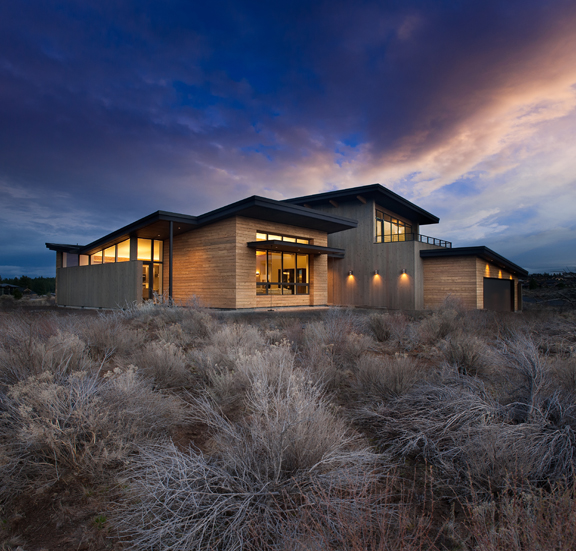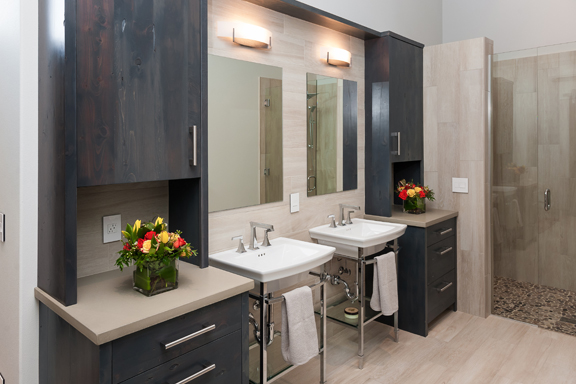Written by Dahlia Grossman-Heinze

Homeowners interested in building with sustainable materials have a new resource for uses indoors and out: Western Juniper.
This native Oregon tree was recently known as a nuisance— thanks to decades of fire suppression and climate change, it spread rapidly, gobbling up more than nine million acres of land in Eastern Oregon. As it spreads, Western Juniper destroys habitats, turns grasslands into deserts, hurts the livelihoods of farmers and ranchers, and perhaps most worrying, consumes up to 35 gallons of water per tree each day. Today, homeowners, landscapers, architects, and interior designers are giving Western Juniper new life as decks, cabinets, fence posts, and garden boxes thanks to a state-led effort to sustainably harvest the wood that’s helped restore ecosystems and created much-needed jobs in rural Oregon.
Three years ago, the state of Oregon launched the Western Juniper Alliance (WJA), a collaborative effort managed by Portland non-profit Sustainable Northwest, to find a path towards a sustainable harvest that also helps rural economies. The WJA has kickstarted a new market for Western Juniper, with sales growing rapidly throughout Oregon, Washington, Idaho, and California.
“Western Juniper is well-known for its durability and natural beauty, but the market for the wood was limited,” said Dylan Kruse, Policy Director for Sustainable Northwest. “By telling the story of Western Juniper and providing quality products and reliable service, we’ve seen a 150 percent growth in sales in the past three years. It’s an exciting demonstration of how valuable the wood has become for both commercial and residential uses.”

Western Juniper can be used to stunning effect in paneling and flooring, in finished surfaces like countertops, and for furniture and cabinetry. A recent custom home built by Neil Kelly in Bend, Oregon, uses Western Juniper in its exterior siding and bathroom cabinets, creating a beautiful rustic, warm look. Neil Kelly incorporated the locally harvested wood in the 4,193-square-foot home to help give back to the local environment.
Long considered a junk wood, Western Juniper is now prized not just for its sustainability, but also for its durability. Impervious to rot and disease, and free of chemical preservatives, Western Juniper often lasts five decades or more outdoors.
“It’s one tough wood, but beautiful in all kinds of ways,” said Kruse. “It’s a lot like our state. That’s why we like to say Western Juniper is a hardworking wood with Oregon values.”




